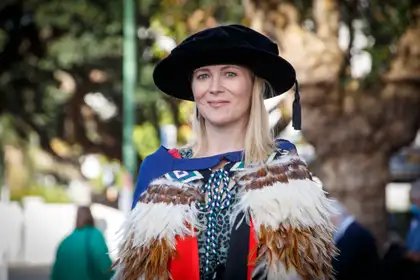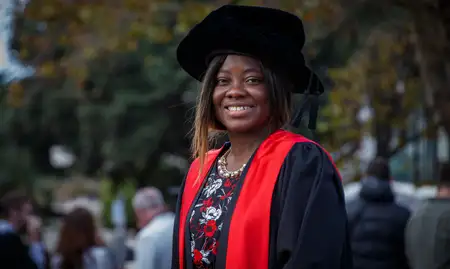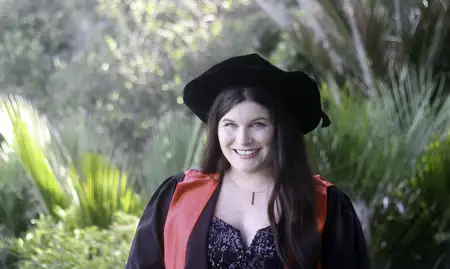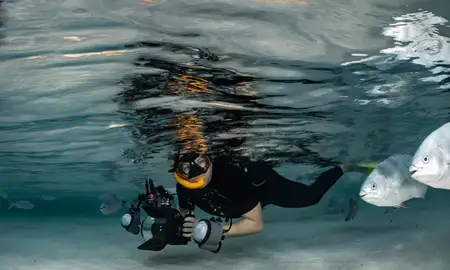
Dr Amber McAllister
For Massey University graduate Dr Amber McAllister, Te Arawa, Ngāti Whakaue, the death of a whānau member by suicide motivated her to examine the Māori experience of suicide loss as the topic of her Doctor of Clinical Psychology thesis.
“My cousin died by suicide so there was a personal connection. I became aware just how high our suicide statistics were, especially for Māori. I realised there was limited research for Māori whānau bereaved by suicide and that further research was needed for both postvention and prevention,” Dr McAllister says.
Her thesis was kaupapa Māori research that explored how Māori whānau experience the loss of a loved one to suicide in terms of their various ways of coping, the impact of the suicide on the whānau, barriers to coping within and outside of the whānau, and also whether and how resilience occurred through such an experience of loss.
While Dr McAllister acknowledges that every whānau is different, her findings highlighted experiences that may be familiar to bereaved whānau and offered strategies that may be useful.
“Te ao Māori [the Māori world view] was important in providing processes that help with grief as well as a sense of connection - be that to people, groups, or to significant places in nature - which can be especially important when whānau can feel alone and disconnected in their experience,” Dr McAllister says.
“Trusting and being open to wairua [spirit] was also helpful. Within the whānau units themselves, communicating with each other and sharing emotions was needed, and being aware that different members may need different supports.”
What surprised Dr McAllister was that there is still stigma associated with suicide.
“This was shown in the reactions of others, which had a silencing effect on whānau,” she says.
She was also disheartened by the systemic barriers that were evident.
“For instance, the coronial processes were experienced as traumatic, and the current mainstream services and supports were not considered useful or effective.”
Not only did Dr McAllister tackle a tough thesis topic, she completed her study while being a busy mother of three.
When she started at Massey in 2014, to complete a Graduate Diploma in Arts in Psychology, she started studying via distance despite living in Auckland, as her son Cullen was 2 years-old, and her identical twin girls Ava and Lulu were only babies.
Dr McAllister was fortunate to be part of the Te Rau Puawai programme during her clinical study, an academic support programme for students who will work in the area of Māori mental health.
“Not only did being part of the Te Rau Puawai whānau help financially with my study, the feeling of being supported and connected during my study was invaluable.”
Once she completed the Clinical Psychology programme at the Auckland campus, her whānau relocated to Tauranga where she is currently working as a clinical psychologist at Lakes District Health Board. She has also started a small private practice, working alongside another previous Te Rau Puawai bursar, Nari Hann.
With her research now complete, Dr McAllister is still considering how best to disseminate the findings moving forward.
“Unfortunately, I lost another loved one to suicide only a few weeks ago which highlighted for me even more the importance of suicide bereavement research.”
Related news
PhD graduate’s research is the first holistic assessment of the ecology of ponds in Auckland
Born and raised in Ghana, pursuing higher learning and graduating with a PhD has been a dream come true for Dr Abigail Kuranchie.

Bringing multiple job holding out of the moonlight
Dr Zoë Port is a Lecturer in the School of Management at the Massey Business School, and also Co-Director of the Healthy Work Group research team.

Exploring climate change from beneath
Self-declared ‘fish nerd’ Dr Irene Middleton is a marine ecologist with a passion for educating and connecting people with the ocean and its creatures for the purpose of conservation.
